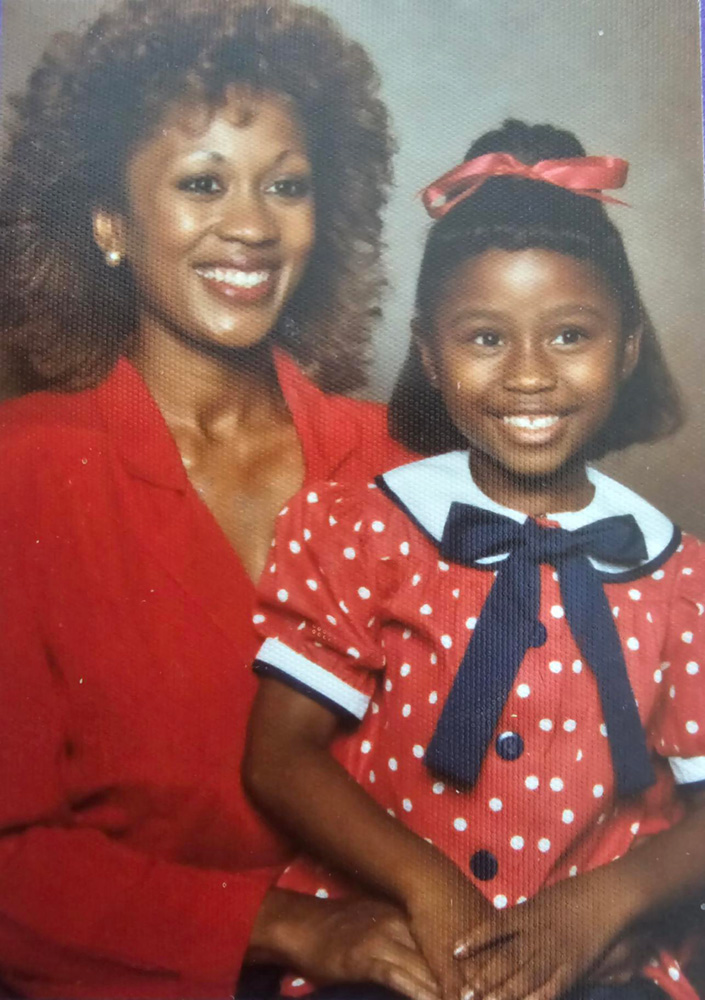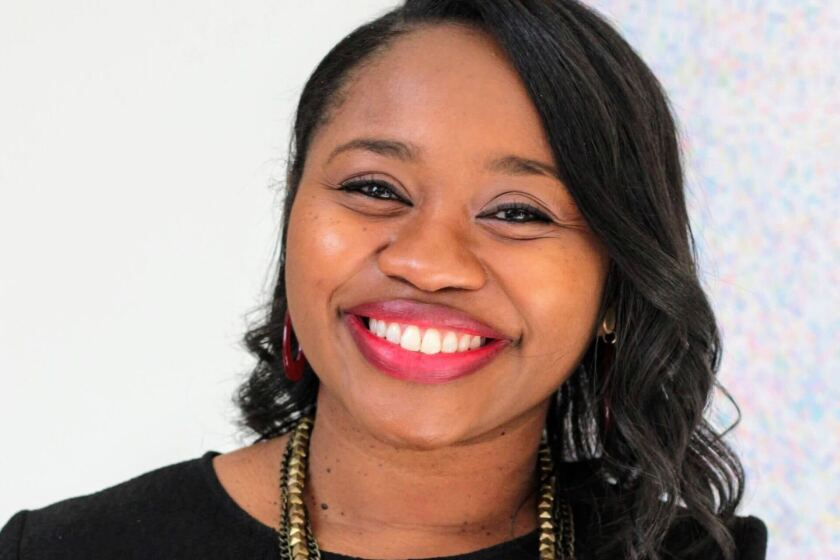Just as Early Learning Nation showcases the ways families, researchers and grassroots nonprofits and organizations are building an early learning nation—one community at a time—our Community Cultivators series highlights how innovators across all sectors build and sustain global communities from the ground up. We hope the series inspires your own early childhood work.
What do you get when you put a young child and a young adult together in a classroom? Magic, says Crystal Rountree, CEO of Jumpstart. “We’re catching people at the two most pivotal times in their lives,” she says, “as they’re preparing to enter kindergarten, and as they’re graduating from college and preparing to enter the world.”
This past January, after service in Teach for America and 18 years on its staff, Rountree became the first Black female to lead the literacy tutoring nonprofit in its 30-year history.
“Crystal Rountree has all of the key qualities of a transformative leader,” says Jumpstart board member Dr. Michael H. Levine. “She is a brilliant listener, a brave risk-taker and a visionary field builder. Jumpstart has accomplished much in its three decades of innovative work to advance young children’s literacy. Under Crystal’s leadership, I am confident the organization will take two-generation learning and professional advancement programs to a whole new level.”
Here’s what Early Learning Nation magazine learned from talking to Rountree.
“Point to the destination.” This is the title of the chapter that features Rountree (when her name was Crystal Jones) in Switch: How to Change Things When Change Is Hard (2010), the bestselling management book by Chip and Dan Heath. The book touts the power of setting ambitious goals.

As a Teach for America corps member in Atlanta from 2003 to 2005, Rountree was educating first-graders who reminded her of herself in many ways. “Most of my students had single parents who fit into the category of lower income,” she recalls. The parents’ economic struggles prevented many from taking advantage of Georgia’s universal pre-K program, and at the start of the year, many of the first-graders were struggling with basic alphabetic awareness. By the end of the year, 90% were reading at the third-grade level, and the other 10% were on a second-grade level.
“We had set the goals to be third graders, and I just remember being so excited when we made it,” Rountree says, adding that while her students were brilliant, “so many other kids in that building and across the city and the country were just as brilliant.”
Today, the mother of a rising second grader is applying the lessons from teaching to her executive role, using the joy of learning to set the course for Jumpstart. “I feel really proud that I get to steward us into this next chapter,” she says.
Supportive relationships drive literacy. In 14 states and Washington, D.C., 2000 Jumpstart corps members, most of whom are recent college students, volunteer to work on a semi-weekly basis with small groups of 3-5-year-olds over the course of a school year—a total of 200-300 hours. (There’s also a summer version, where programming is spread out over the course of the week.)
Because the model is rooted in relationships, the volunteers stick with the same children throughout the program. The relationships, Rountree explains, are central to Jumpstart’s social-emotional skill development—which has become more crucial since the pandemic—as well as the literacy goals.
College students are an untapped resource. Financial and systemic issues are pushing too many early childhood educators out of the field, forcing child care centers across the country to close. The nation’s 18 million college students might represent part of the solution. Rountree, who graduated from Clark Atlanta University, a historically Black College, counts preparing college graduates for the workforce as an objective that’s just as critical as the early-literacy one.
Nearly three of four corps members are people of color; they come from large state schools, public and private institutions and community colleges. ”Jumpstart changes their hearts and minds,” she says. Naturally, many corps members go on to become teachers, and Jumpstart recently launched an Accelerated Workforce Program in Massachusetts as a jobs pipeline, with plans for expanding into other areas of the country where educators can make a livable wage. Participants will gain career supports and will be able to count their service as credit toward degrees and certifications. Alumni who go into other fields carry with them the experience of working with children. Rountree recently met two pre-med students planning to choose pediatrics as their specialty.
Storybooks spark learning. When a tutor and a child read a book together, they are co-adventurers in new worlds, but the magic doesn’t always happen immediately. Rountree describes the experience of Wendy, a tutor assigned to a Head Start classroom in Worcester, Mass. Three of the four students were engrossed in the book she was reading, but Christopher remained off to the side. “Wendy tried all the teacher tricks and strategies to try to draw him in,” Rountree says, “but nothing really worked.”
Wendy started experimenting with different books during the 15 minutes before pickup, and after a few weeks, Christopher began seeking her out at the end of the day to see what special book that she had for him. He began to ask more questions and to express his feelings more. Wendy is now interested and is going to become an early childhood teacher.
“I am thrilled and grateful that Jumpstart has chosen Piper Chen Sings,” says Soo (best known for originating the role of Eliza Hamilton in the musical Hamilton on Broadway). “This book comes straight from the heart and is inspired by my own life and experiences—a little girl who loves to sing but is overwhelmed with nervousness about singing in front of others. Maris and I hope Piper gives comfort to readers who may be navigating their own complicated feelings, and inspires them to pursue the things in life that give them joy.”
Brain science points to new opportunities. Advances in neuroscience make it possible to nurture bright young minds more effectively during critical development phases. As scientific knowledge and best practices evolve, so does Jumpstart’s curriculum, which now emphasizes “conversational turns”: interactive exchanges between adults and children.
It is partnering with organizations like LENA to explore ways of increasing the frequency and quality of conversational turns. “By integrating these scientifically backed approaches,” Rountree says, “we foster environments that support immediate educational outcomes and set the stage for long-term success.”
The meaning of “readiness” is changing. “Being a new CEO,” Rountree reflects, “is like having a buffet before you. It all looks delicious, but how do you prioritize? How are you mindful of what you take on first?” She says her priority for now comes down to defining Jumpstart’s impact. “We’ve got this incredible vision that every child will enter kindergarten ready to succeed,” she says, but there are other considerations as well, including “getting schools ready for kids,” “getting schools ready for the future” and “getting students ready for a changing world.”
Some of the models used to educate kids, she says, aren’t going to work into the future. She envisions language, literacy and social emotional skills all figuring into the mix for 2024 and beyond.
“We’re going to shape the future of early childhood,” Rountree says—pointing to a new destination.

Mark Swartz
Mark Swartz writes about efforts to improve early care and education as well as developments in the U.S. care economy. He lives in Maryland.



